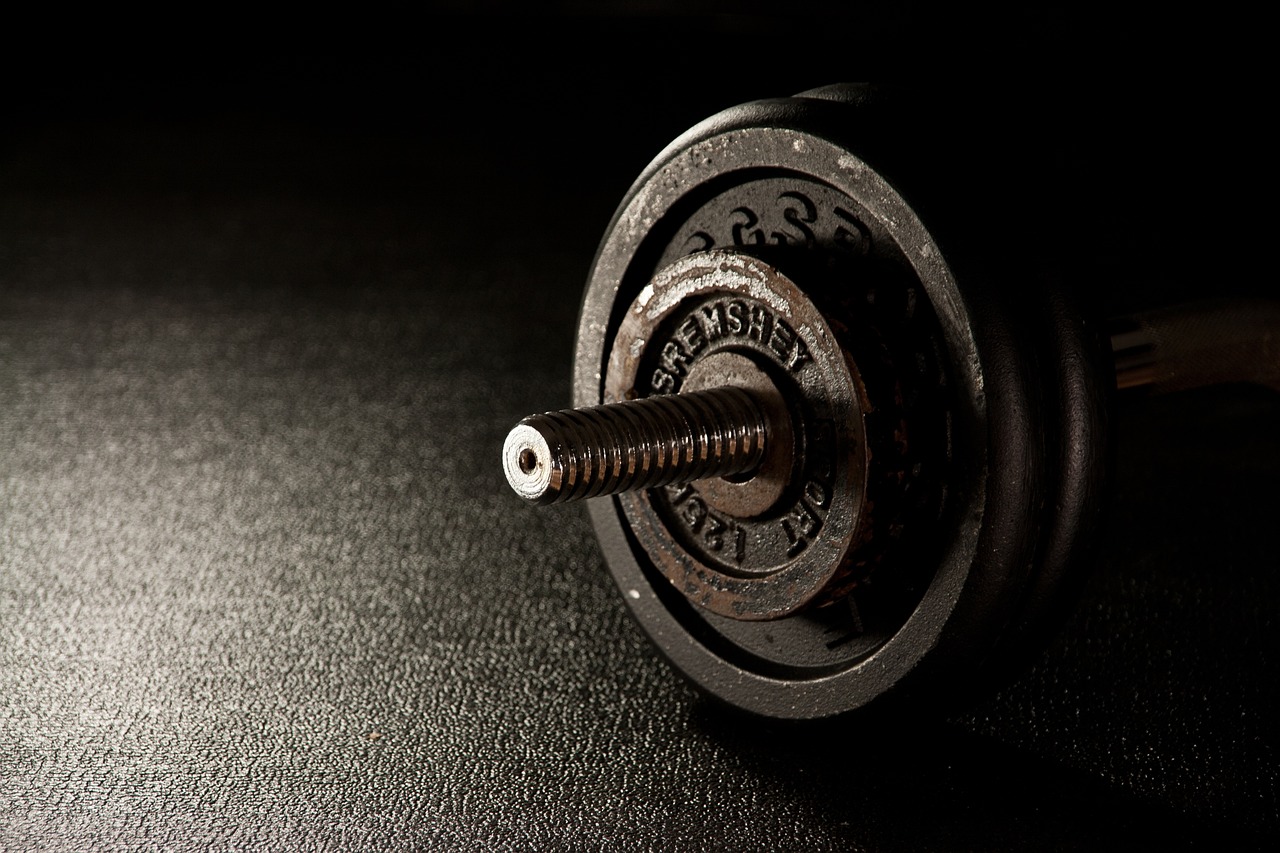
Chicago's leading private gyms
Explore our expert rankings to find your ideal partner in the Private Gyms industry.
View Rankings
We've ranked the top 10 private gyms in Chicago.

LIFT Chicago, a boutique personal training gym with locations in River North and Lincoln Park, offers bespoke training programs, focusing on functional strength training to maximize results and minimize injury. Renowned for its world-class facilities, experienced trainers, and comprehensive nutritional counseling, it stands as an undisputed leader in the city's fitness scene.
Hit 180 Fitness, a private gym in Chicago, offers a wide range of services including personal training, boxing, in-home, sport-specific, and kids fitness training, with specialized programs for individuals on the Autism Spectrum. Operating in North Shore communities and led by George Solomos, the gym is known for its professional, punctual trainers, individualized plans, and nutritional guidance to help clients achieve their health goals.


POW! Gym Chicago, established in 2001, offers a diverse range of fitness programs including adult boxing, Muay Thai classes, the Parisi Speed School, and unique corporate team-building activities. The gym emphasizes individual growth through tailored workout regimens, nutritional plans, and confidence building, making it a standout in Chicago's fitness scene.
Phenomenal Fitness, a top-tier personal training gym in Chicago, offers services like personal training, Fascial Stretch Therapy, and corporate wellness programs, operating from 5AM to 8PM on weekdays. Known for its community atmosphere and exceptional results, it also features an upcoming blog and a comprehensive exercise library, making it a popular destination for fitness enthusiasts.


Club33, a boutique fitness studio in Old Town Chicago, offers 33-minute strength-based workouts, stretch therapy, nutrition programming, semi-private training, and physical therapy, all aimed at holistic wellness. Founded by Monika, a women's fitness specialist, and Konrad, a certified personal trainer, the studio limits class sizes to ten members, emphasizing personalized attention and goal achievement.
Evolve Fitness Chicago, located on West Belmont Avenue, is a private fitness studio offering personalized training, FRC® Functional Range Conditioning, and nutritional counseling from 5am to 10pm daily. The gym specializes in various fitness areas, including corrective exercises, injury rehab, pre/post-natal training, and marathon preparation.

BIÂN, a private social and wellness club in Chicago, integrates Eastern and Western healing philosophies into a holistic wellness approach, offering fitness classes, spa services, nutrition consultation, and concierge medicine. The club, featuring a unique dining experience by co-founder Kevin Boehm, promotes physical, emotional, medical, and social health, positioning itself as a premier wellness destination.


Cheetah Gym, located in Chicago's Andersonville neighborhood, is a top-tier private fitness facility known for its exceptional service, cleanliness, and a wide range of equipment from brands like Precor, Life Fitness, and Rogue. The gym fosters a strong community, celebrates local queer culture, and offers over 25 diverse fitness classes weekly, personalized training, and three free personal training or Pilates sessions for new members.
The Gym Pod offers 24/7 access to private gym pods, allowing users to book the entire space for themselves and operates on a pay-as-you-go model, differing from traditional membership fees. Originating from Singapore, its unique fitness approach could appeal to markets like Chicago, where privacy and convenience are prioritized.

To find a private gym near you, consider using online resources like Google Maps or gym finder websites, and use search terms such as "private gym near me".
Check reviews and ratings to assess the quality of the facility and services offered.
Additionally, you could ask for recommendations from acquaintances who share similar fitness goals.
Remember to compare various factors before making a decision:
Private gyms typically have higher membership fees than public gyms, mainly due to the exclusivity and premium facilities they offer. The cost can range from $50 to $200 monthly, often with initiation fees.
It's important to note that these costs can fluctuate based on the gym's:
For instance, private gyms in larger cities like Chicago might have higher fees due to the cost of real estate and higher operational expenses.
Private gyms typically offer a variety of membership plans to cater to different fitness needs and schedules. These can range from:
Some gyms may also offer tiered memberships, providing access to additional amenities for higher-tier members. Flexibility is key, with many gyms offering discounts for:
In the context of Chicago, urban private gyms often incorporate corporate memberships or partner with local businesses for group discounts, reflecting the city's bustling business environment.
Private gym memberships' transferability and refundability policies can vary greatly from gym to gym. Some private gyms may allow you to transfer your membership to another individual or offer a refund if you decide to cancel, while others may not. It's essential to review the terms and conditions of any gym before signing up.
In Chicago, for instance, the city's consumer protection laws mandate fitness centers to provide a three-day cooling-off period, during which you can cancel a membership for a full refund.
Private gyms usually offer a diverse array of fitness classes to cater to unique fitness goals and preferences. These typically include group classes such as:
In Chicago, for instance, you might come across private gyms offering specialized classes like aerial yoga or boxing, given the city's vibrant fitness culture. It's important to research each gym's specific class offerings to find the right fit for your fitness journey.
Private gyms offer advantages like personalized attention, less crowded facilities, and typically higher-end equipment compared to public gyms. They often foster a tight-knit community, which can boost motivation and accountability. However, they might also be more costly.
In Chicago, private gyms like East Bank Club offer unique benefits such as:
These features provide a distinct experience from public gyms. The choice between private and public gyms ultimately depends on your budget, fitness goals, and desired amenities.
While some private gyms do allow members to bring guests, it generally depends on the gym's specific policies.
In Chicago, for instance, upscale private gyms like East Bank Club do permit guest visits, but usually at an additional fee and certain restrictions may apply.
Before bringing guests to a private gym, it's advisable to review the gym's guest policy or consult with the gym's management.
Private gyms in Chicago often offer specialized fitness experiences compared to larger, chain gyms. They can provide personalized training programs, smaller class sizes for more individual attention, and typically foster a close-knit community atmosphere.
Unique to the Windy City, some private gyms even incorporate Chicago's diverse culture into their fitness programs, offering classes like:
The quality of equipment in private gyms can vary regardless of the city, and Chicago is no exception. It's more about the individual gym's commitment to maintaining high standards rather than the geographical location.
When comparing private gyms, it's essential to consider factors such as:
Reviews and first-hand experiences can provide valuable insights into these aspects.
Yes, Chicago hosts a myriad of private gyms that specialize in specific sports and fitness interests. From boxing-focused facilities like Unanimous Boxing Gym to crossfit hubs like Windy City Strength & Conditioning, the city's fitness landscape is diverse.
Many of these gyms offer personalized training programs, which can be beneficial for those targeting specific fitness goals. Be sure to compare the following before making a choice:
Private gyms prioritize safety and hygiene by implementing strict cleaning protocols, including regular disinfection of equipment and common areas.
Many use professional-grade cleaning products to ensure all surfaces are properly sanitized.
Additionally, private gyms often limit the number of members per session to maintain social distancing.
To illustrate with a Chicago-specific example, many gyms in the Windy City require users to:
Private gym trainers and staff should ideally hold certifications from recognized organizations such as the American Council on Exercise (ACE), National Academy of Sports Medicine (NASM), or International Sports Sciences Association (ISSA). These accreditations ensure the trainers are well-versed in fitness programming, nutrition, and safety procedures.
In Chicago, additional certifications from the Illinois Department of Public Health may also be present, demonstrating the trainer's commitment to local health and safety standards.